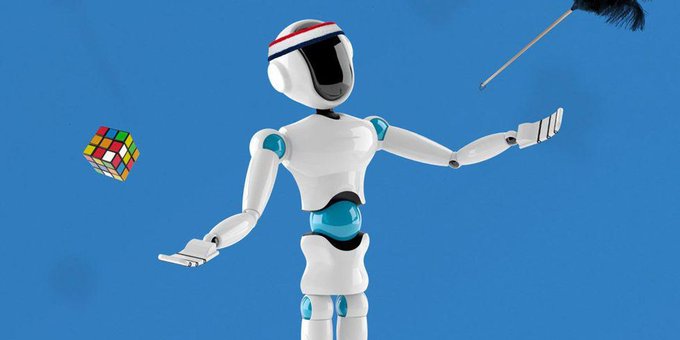
[Cracking the AGI problem] Some beautiful ideas in this blog post: spectrum.ieee.org/how-deepmind-i…
Such as:
1/
Such as:
1/

* The problem of catastrophic forgetting (babies face it - that's (probably) why you don't have any memories of when you were really young - and AIs face it). How do we go about cracking it?
2/
2/
* Embodied AI - does an "AI" have to have a body before it is actually intelligent? It seems our body is a distributed processing system.
As an example, they mention the shape of the ear canal and the fact it does some form of Fourier analysis in real-time ...
3/
As an example, they mention the shape of the ear canal and the fact it does some form of Fourier analysis in real-time ...
3/
Before the signals reach the CPU (brain). Whereas, currently, we're doing everything in CPUs in our artificial systems.
* Proprioception - we are aware of our bodies and their position, shape, and size.
4/
* Proprioception - we are aware of our bodies and their position, shape, and size.
4/
The problem is we currently hardcode this knowledge into our robots. Then when you give them something like a hammer their "mental model" doesn't get updated. Humans seem to do this dynamically.
5/
5/
There are many challenges we need to solve to get to an AGI level (it doesn't have to be superintelligence yet, mouse intelligence will work).
6/
#agi #intelligence
6/
#agi #intelligence
• • •
Missing some Tweet in this thread? You can try to
force a refresh








